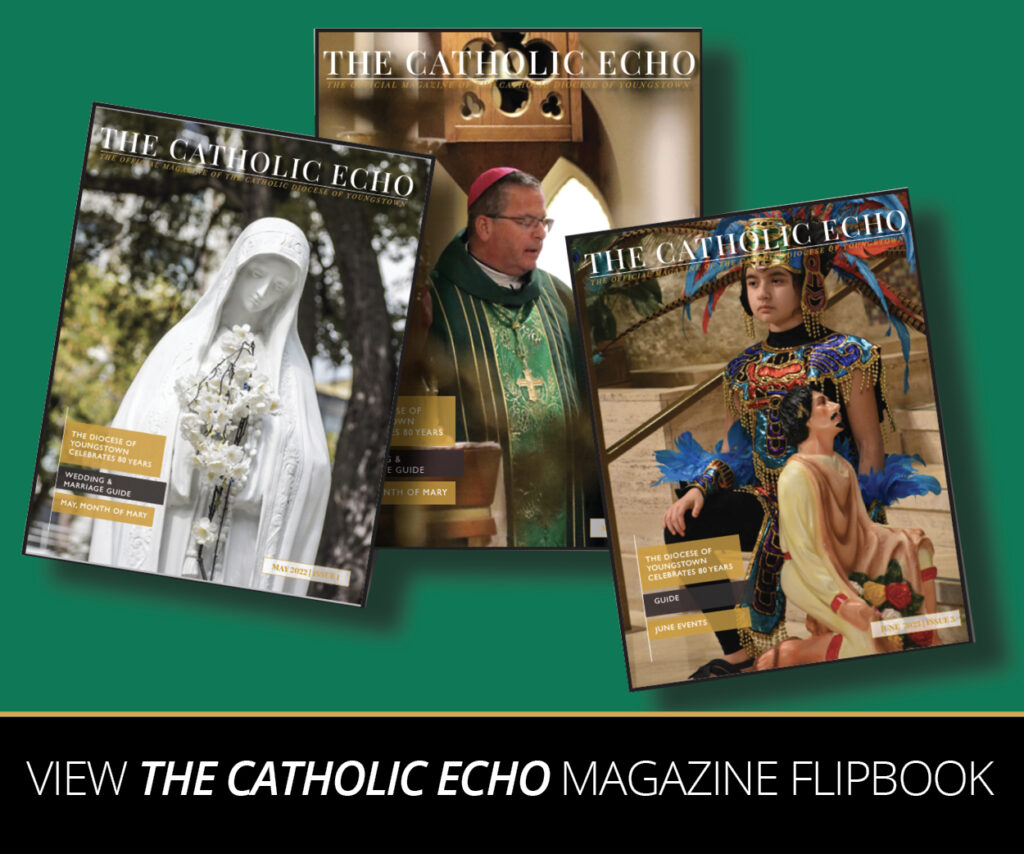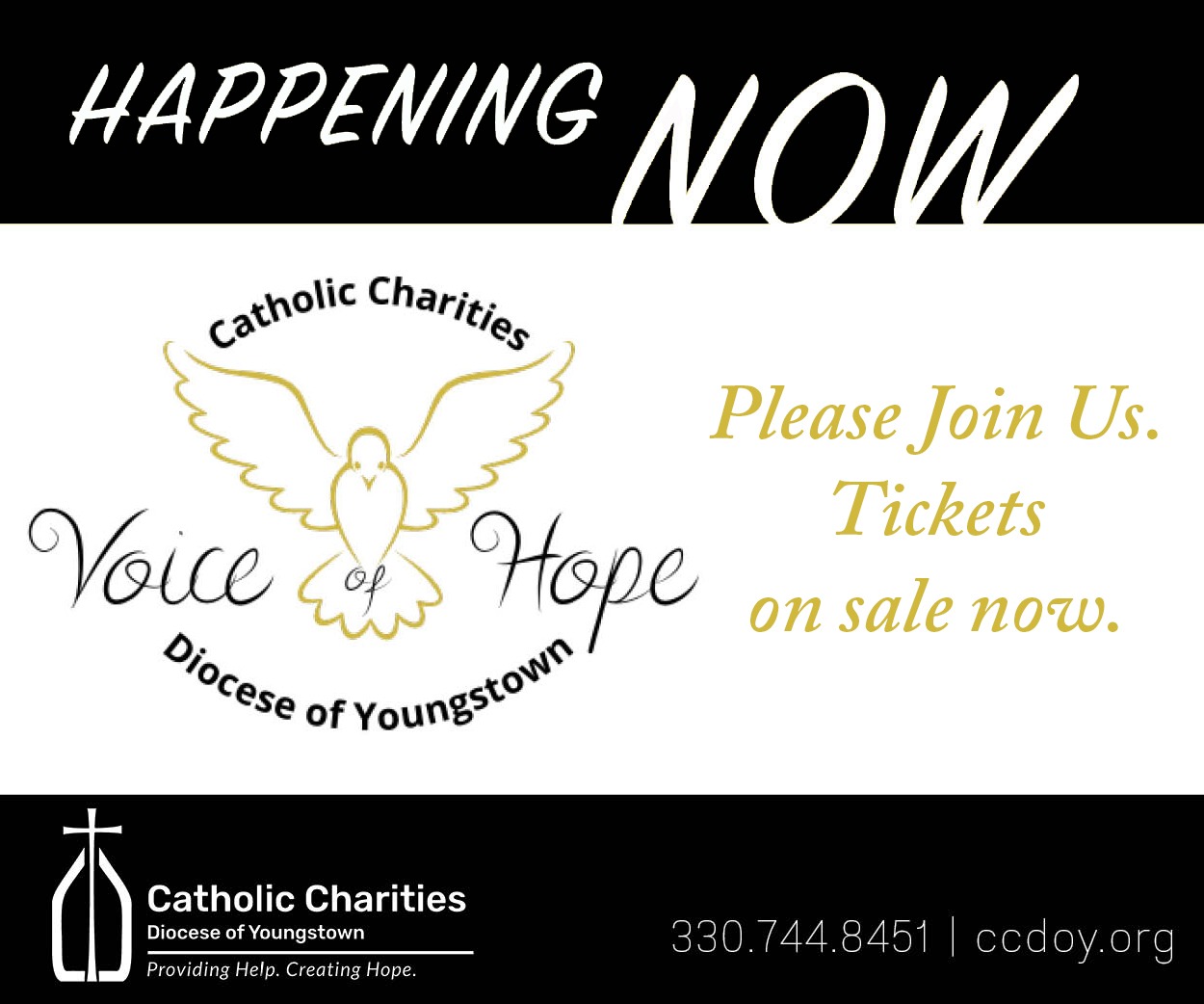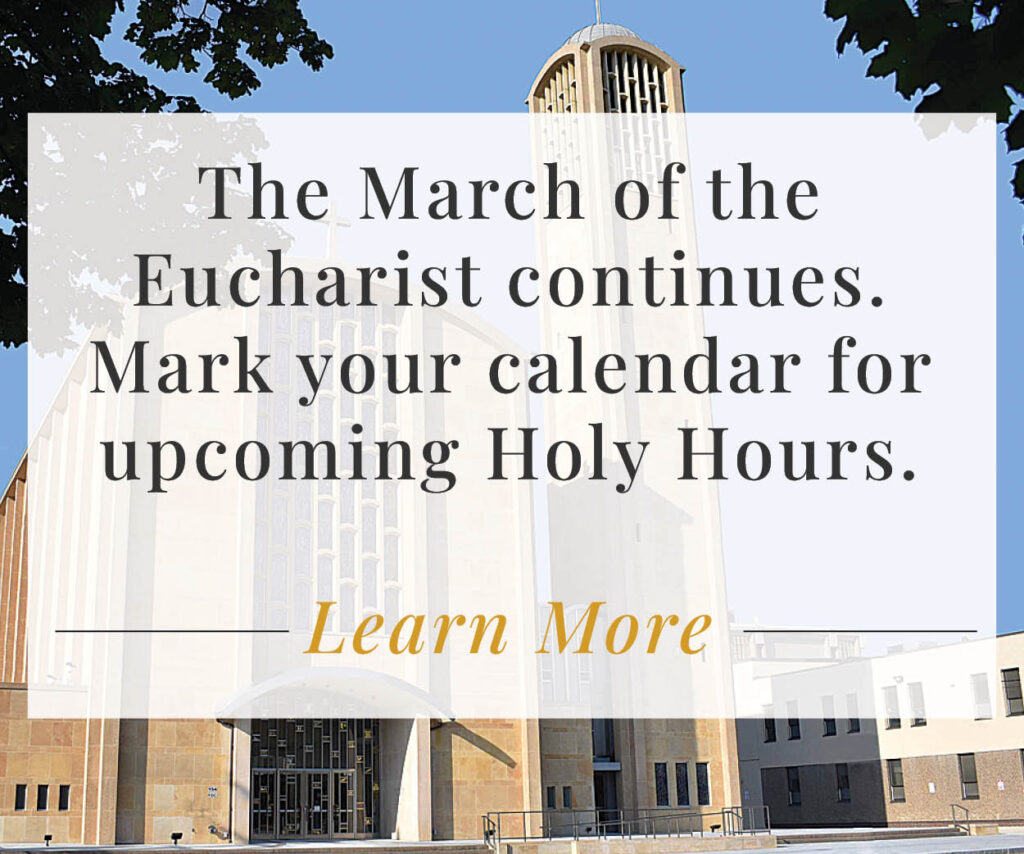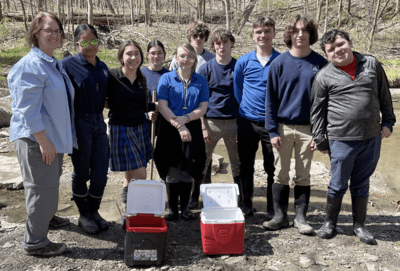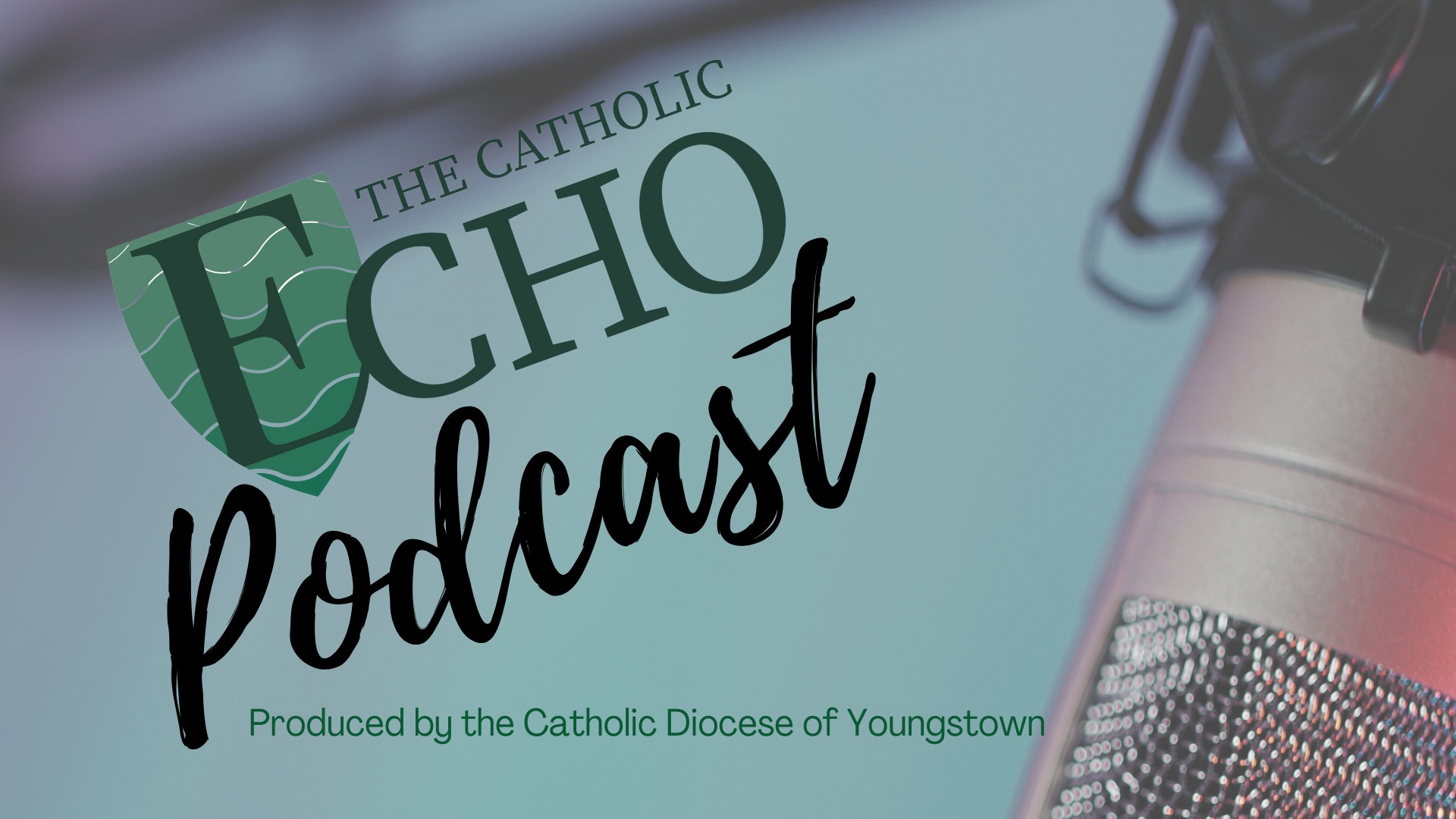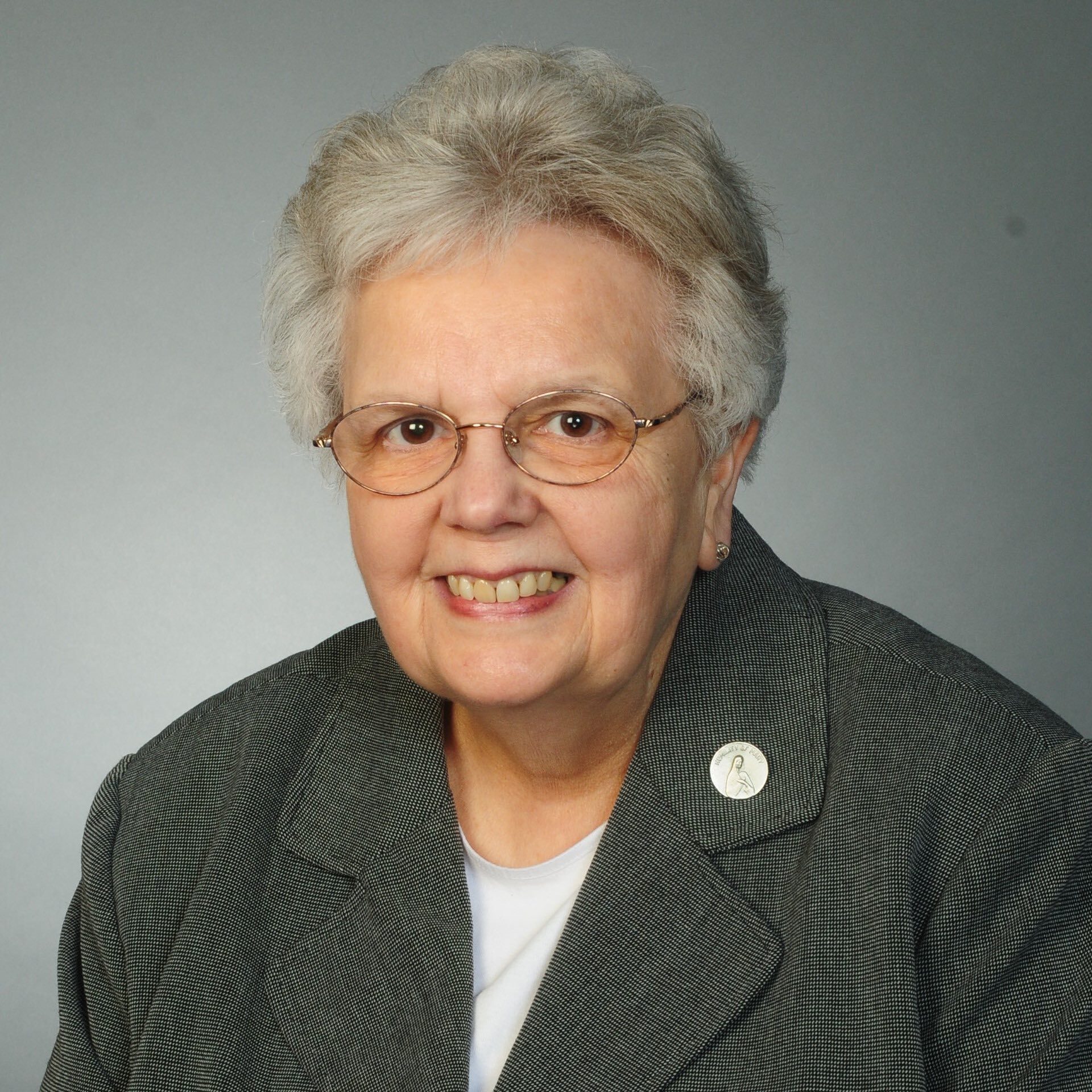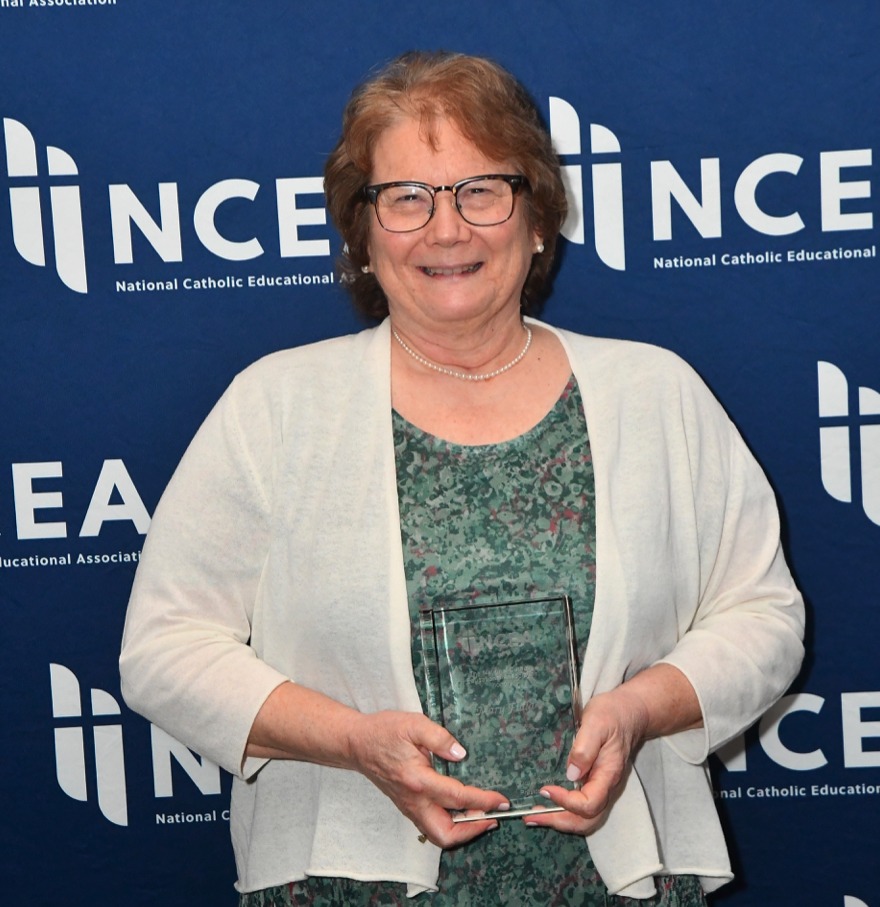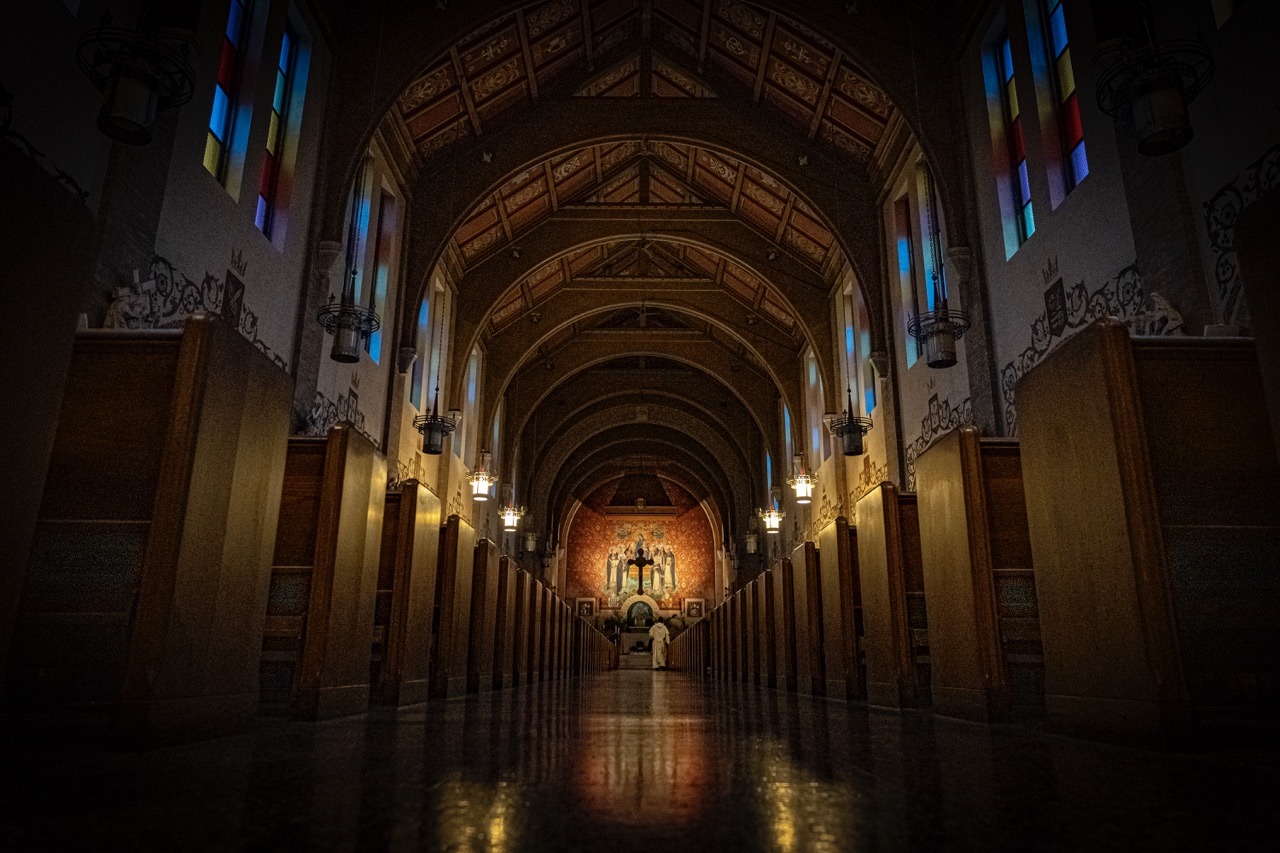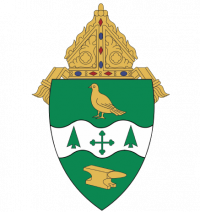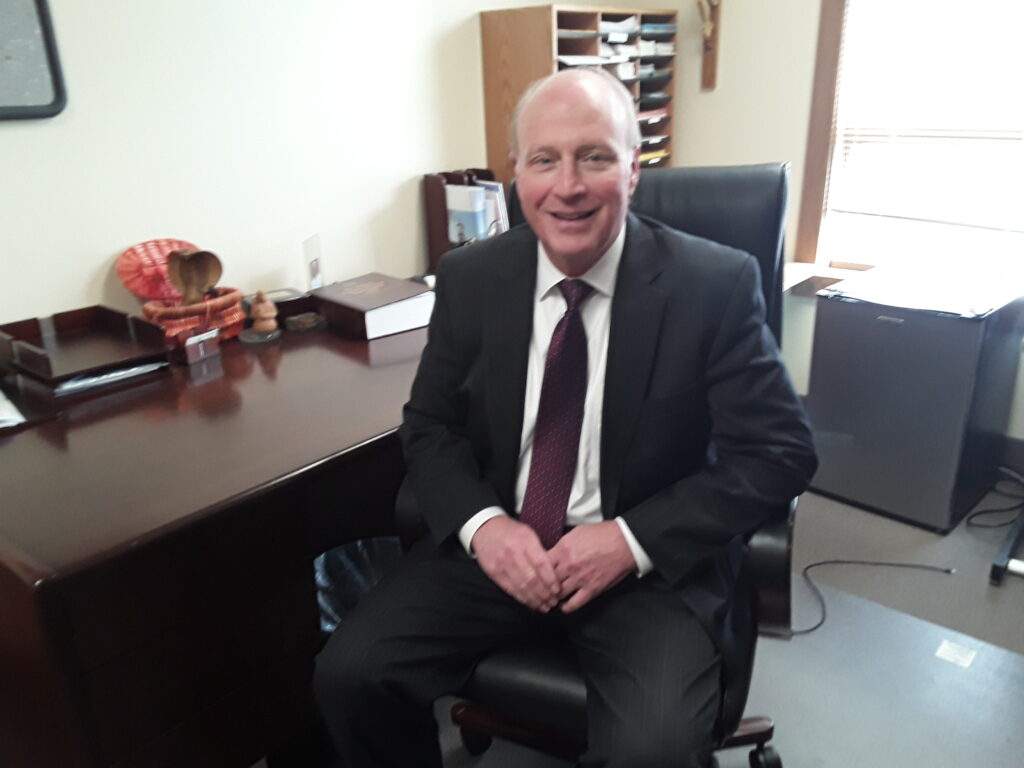
After spending 25 years in the banking industry, Pat Kelly decided it was time for a change.
As it turned out, the Diocese of Youngstown was looking for a chief financial officer and Kelly landed that job 14 years ago.
Kelly had worked at the downtown Youngstown office of the former Home Savings and Loan and its stock holding company, United Community Financial Corp., for 25 years. The company is now known as Premier Bank after a 2020 merger with Premier.
A native of Lisbon and a graduate of Lisbon High School, Kelly grew up at St. George Parish there.
While in college, Kelly decided that working with numbers may be his forte. He earned an undergraduate degree in business at Kent State University and then a Master of Business Administration in finance from the University of Cincinnati.
“I like having the ability to analyze information and then using that information to solve problems,” Kelly said about his penchant for math and finances.
Kelly kept his career options open after graduating from Kent, noting the unemployment rate in Ohio was high in the early 1980s – an era of double-digit inflation as well. So, he opted for graduate school before entering the job market.
“I was open to any avenues in the realm of business and I applied for jobs all over,” Kelly said.
The decision to put off entering the job market paid off because Home Savings had an opening in its accounting/finance department. Kelly interviewed and was hired. He spent his whole career at the downtown Youngstown office.
While working for Home Savings, the locally-owned bank converted from a mutual depositor-owned bank to a public traded-stock institution, and went through three acquisitions in order to grow. With ongoing regulatory reporting requirements, Kelly thought it time to explore other challenges.
A member of the Catholic Charities board for nine years while working at the bank, Kelly also served on the finance council at Boardman St. Charles Borromeo Parish for several terms and was on the investment subcommittee of the diocesan finance council.
“Someone in the diocese approached me about the CFO job because of the planned retirement of Robert Hoffman, who had been here for 13 years,” Kelly said. “I interviewed for the position and was hired, and I worked with Bob for a short time to get acclimated to the job.”
Kelly said it was a “night and day difference” going from the highly regulated banking industry to one with little state and federal regulations. “However, investments have always been a huge aspect of my job, both at the bank and here,” he said.
Kelly said that his faith played a part in taking the job with the diocese. He added that conducting business according to Catholic principles is an important aspect of his work for the Church.
As diocesan CFO, Kelly oversees the accounting functions of the central offices, human resources, employee benefits, information technology, brokers insurance coverage for all diocesan entities, is the liaison for the four diocesan cemeteries, and oversees the Diocese of Youngstown Foundation.
“I am not a one-man show by any means. I have an excellent, dedicated and experienced staff that supports me and offers advice and counsel to our diocesan parishes and schools,” Kelly explained.
One of the biggest changes that has occurred under his tenure, Kelly said, is transitioning to a centralized payroll system for the entire six-county diocese. The centralized system makes the payroll process much easier, as did moving to centralized billing for health insurance.
Kelly also explained where the diocesan central office, known as the chancery, obtains its funding. First, all diocesan parishes pay an annual assessment of 8.5 percent of their weekly collections and the collections for Christmas and Easter.
The second way is through the Annual Diocesan Appeal, formerly known as the Bishop’s Appeal. The chancery receives 40 percent of the net amount collected, which is why each parish has a specific dollar amount goal.
The third way is through gifts or bequests that specifically identify the diocese as a beneficiary, Kelly noted. “This final component is unpredictable and hard to budget for, so we usually don’t include that in our forecast and add it in later.”
The final way the chancery gets funding is through the DOY Foundation, which was started by former Bishop Thomas Tobin. According to the DOY Foundation 2021 report, the funding is broken down as follows: 28 percent to diocesan cemeteries, 27 percent to Catholic schools, 12 percent to human services, 10 percent to priestly ministries, 8 percent to diocesan ministries, 7 percent to individual parish funds, 6 percent to miscellaneous funds and 2 percent to discretionary spending.
The annual assessment from the parishes has remained stable in recent years, Kelly said. “We can’t spend what we don’t have and the parishes can’t give what they don’t have, so we have to be as efficient as possible and make the best use of the resources we do have.”
The diocesan annual financial audit report, he said, is available on the diocesan website at www.doy.org/finance.
Kelly has been a member of Boardman St. Charles since 1995. Before that, he was a member Youngstown St. Dominic Parish.
